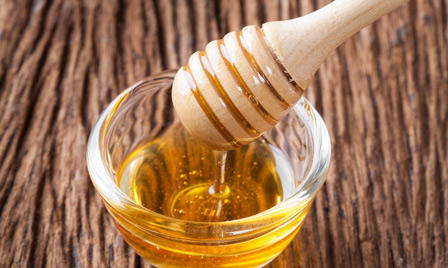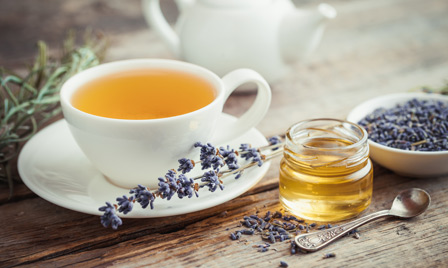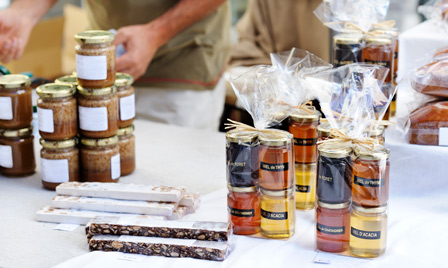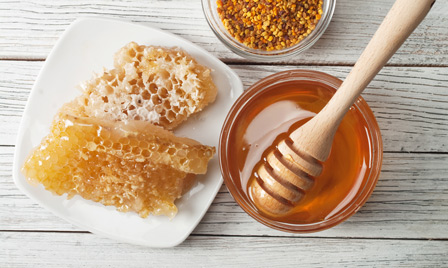
NOURISH
Bee healthy with honey
Posted April 9, 2017
Are you struggling to cut down on sugar, but have a hard time managing your sweet tooth? Try honey. Honey is a natural sweetener that also has many other health benefits.
Composed of glucose and fructose, honey contains up to 18 amino acids, as well as antioxidants, vitamins, minerals, proteins, enzymes and polyphenols, which all contribute to your overall nutrition. The different flavors and smells of honey come from the particular kinds of flowers bees used. In general, darker honey contains more vitamins and antioxidants than lighter kinds. The interesting, bolder flavors in honey mean you might be able to use a smaller amount, reducing your overall sugar intake.

Honey is also a natural cough and sore throat remedy. Studies show it's as effective in reducing coughs as some over-the-counter cough suppressants. One to two teaspoons of honey before bed can help reduce a nagging, nighttime cough and, because of its coating properties, can help relieve a sore throat.

Be careful when buying honey. Most honey sold in those cute plastic bear bottles at grocery stores has been pasteurized, or heated, which destroys much of its naturally occurring health benefits. Whenever possible, choose raw, unpasteurized honey from local beekeepers. Farmers markets are a good place to find raw honey.

Don't throw away honey if it becomes crystallized. When kept in a sealed container, honey has no expiration date. The acid content—from super-concentrated sugar—is so high that bacteria can't survive. If your honey forms crystals just warm the container in a pot of warm water on your stove-top or in the microwave to dissolve the crystals.

One caution: Honey should never be given to children younger than one year old due to health risks associated with their yet-to-mature immune systems.
-
What to eat and why
How to schedule
MORE ARTICLES LIKE THIS
Get fun, inspiring, provider-reviewed articles sent to your inbox.
Sign up for our email newsletter




